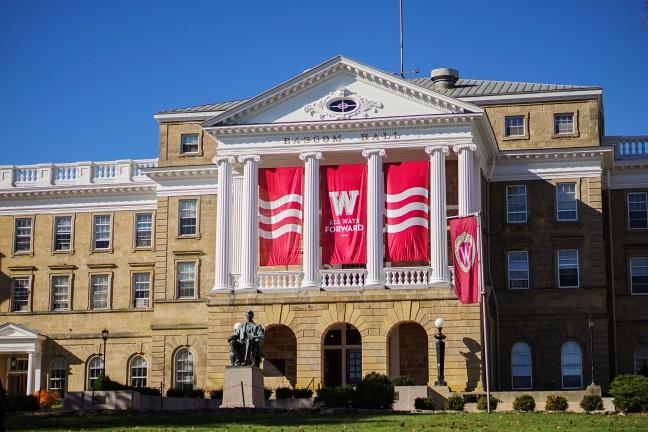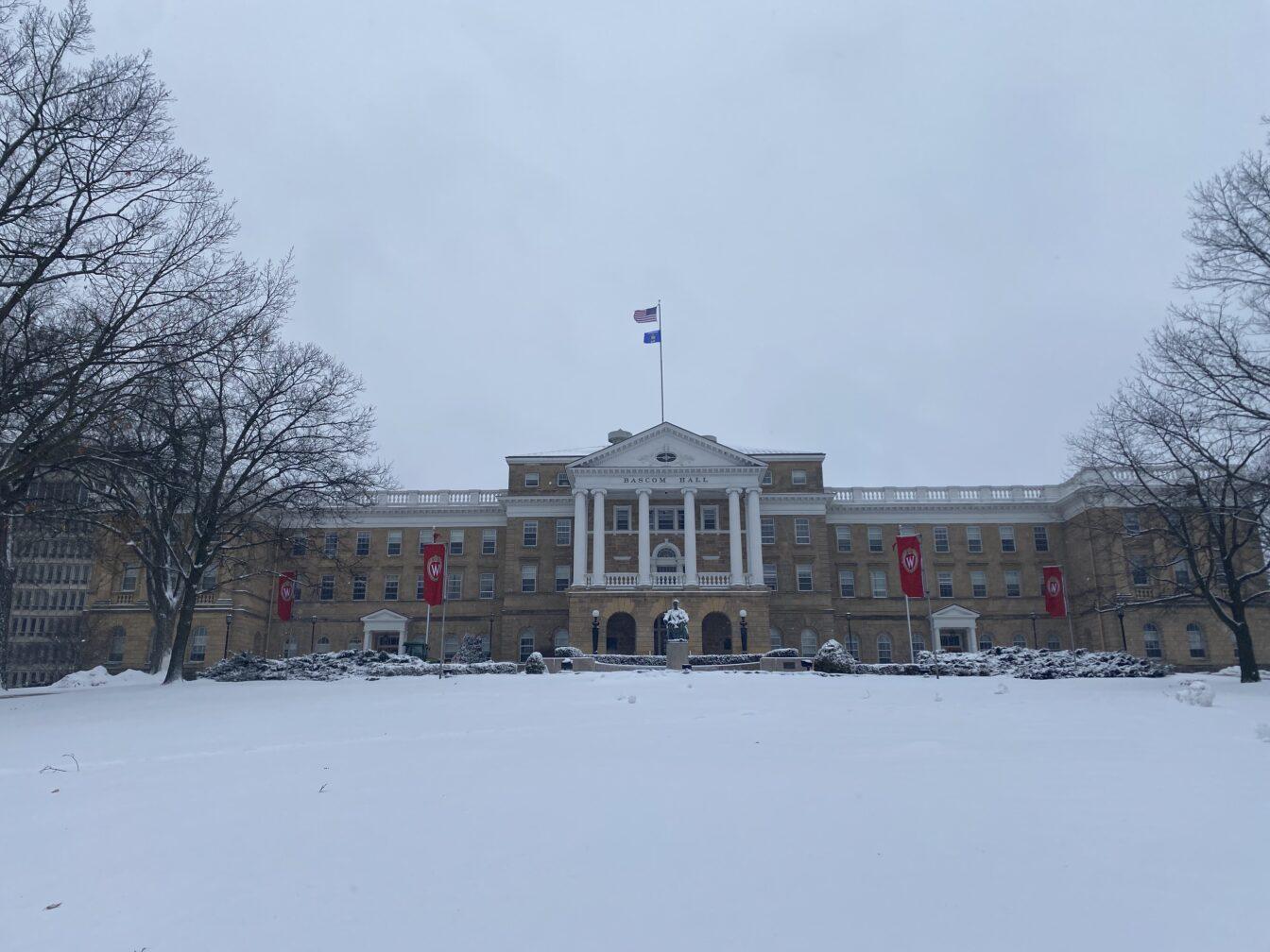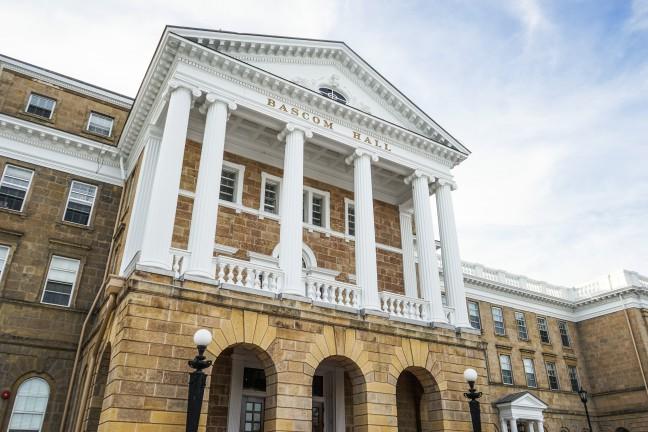The Badger Herald Editorial Board deemed these stories important to watch for during the fall 2022 semester.
Abortion
The story —
June 2022, the U.S. Supreme Court overturned Roe v. Wade, eliminating federal standards on abortion and leaving the legality of abortion to the discretion of each state. Without federal standards, the right to receive an abortion in Wisconsin falls back to the 1849 Wisconsin Criminal Abortion Statute that bans abortions in almost all cases. But, the ability to enforce this law and the future of abortions in Wisconsin continues to hang in the balance.
Shortly after the U.S. Supreme Court’s decision, Gov. Tony Evers and Attorney General Josh Kaul announced a lawsuit challenging the legality of the 1849 criminal abortion ban. Evers later stated he would offer clemency for physicians who are prosecuted for providing abortions with Kaul echoing a similar sentiment of not enforcing the ban.
Oct. 4, Evers called a special session with Wisconsin lawmakers to discuss a constitutional amendment to allow voters to repeal Wisconsin’s criminal abortion ban. The Republican-controlled legislature rejected the proposal in a matter of seconds, with the session lasting a mere 15 seconds.
What to watch for —
While it may seem that readers need to watch for legislative or legal action from current Wisconsin politicians, the future of abortion rights in Wisconsin largely depends on the outcome of the midterm election this November. Given the Republicans’ actions this far, it is safe to say a shift in office from a Democrat to a Republican governor can completely alter the trajectory of abortion law in Wisconsin.
Republican candidate Tim Michels has openly stated he would support a bill that bans abortions in Wisconsin. Republican Attorney General candidate Eric Toney has similarly said he would enforce the near 173-year-old abortion ban. A switch from Evers to Michels or Kaul to Toney will most certainly ban abortions in Wisconsin on account of the 1849 Wisconsin Criminal Abortion Statute.
A women’s right to choose, unfortunately, will at the end of the day depend on the ruthless game of politics. Readers need to watch and wait until November to see how this situation will play out.
UW Health nurse shortage
The story —
It’s no secret that the ongoing COVID-19 pandemic has taken an unimaginable toll on nurses locally and globally. Widespread burnout and low pay prior to the pandemic have exacerbated present-day issues, namely a nursing shortage.
UW Health nurses recently voted to authorize a three-day strike if their union, formed prior to the pandemic to address “understaffing, turnover, cuts, exhaustion and burnout,” was not recognized. The strike was ultimately averted after hospital administration and nurses reached an agreement, though not a formal recognition of their union.
Key points to note are Gov. Tony Evers’ involvement in mediation efforts between the hospital and nurses, especially ahead of elections, as well as the uncertainty that lies ahead for a nurses’ union and how UW Health will address worker burnout and shortages. Though nurses celebrated the agreement reached in lieu of the strike, unionization is essential to avoid worsening occupational conditions.
What to watch for —
As it stands, UW has committed to increasing nurse recruitment to help solve the shortage. But looking ahead, will better recruitment change current work conditions? Without a robust healthcare workforce — for which nurses are the backbone — can an increased workforce alone solve the burnout and exhaustion faced by frustrated nurses?
Wisconsin opioid settlement
The story—
In 2021, a bipartisan coalition of state attorneys general announced a $26 billion national settlement with drug maker Johnson & Johnson and three distributors of opioids that continued distribution despite staggering overdose deaths related to the drugs. This summer, it was announced the state of Wisconsin would receive about $400 million from the settlement over the next 18 years. In late July, Wisconsin received $6 million of the $31 million settlement money projected to come in before the end of this year. Wisconsinites have suffered greatly from the opioid epidemic, with many counties leading the country in overdoses only five years ago.
By law, 30% of this settlement money will be distributed by the Wisconsin Department of Health Services (DHS). The other 70% heads to local governments that joined in on the suit. The legislature has final approval over settlements the Governor’s office reaches with manufacturers and distributors. Despite the unconstitutionality of this law, Act 57, Gov. Tony Evers signed off on it to get the money where it is needed as quickly as possible.
What to watch for —
Despite the funds arriving to the state, the Wisconsin DHS and the Republican-controlled budget committee were at odds over how to use the spending. Last month, the Joint Committee on Finance approved the DHS’ plan for the use of the $31 million coming in this year.
In related news, Dane County Executive Joe Parisi announced the Harm Reduction and Prevention Act on Sept. 8. This is despite the settlements Dane County will receive from the $31 million settlement payment and in addition to the $1.6 million the county already mandated toward prevention and opiate addiction treatment services.
Watch for how the funds from the settlement in addition to the $1.6 million in Parisi’s 2023 budget are tangibly affecting the community’s addiction issues. As overdoses spiked in Dane County just two months ago, it will be equally interesting and necessary to hold those who allocate these funds accountable and ensure Dane County officials and DHS use them in a practical, purposeful and effective way.
The Badger Herald Editorial Board: Redefining our new normal as COVID-19 pandemic continues
Redesign of the Metro Transit bus system
The story —
The Madison Metro Transit network is coming out of a two-year-long redesign process, with new routes being implemented in 2023. The recently approved plan focuses on consolidating many of the existing routes to run more frequently through central Madison. The redesign will also include the implementation of a Bus Rapid Transit (BRT) system in 2024, which aims to streamline routes with larger buses, specialized traffic lanes and less frequent stops.
The next step requires the plan to be evaluated under Title VI. If needed, the current plan will be adjusted to ensure equitable access for certain protected groups. The city is also working on outreach initiatives to ensure the community is well-informed of changes and gets the help they need to navigate new routes.
As the new plan seeks to consolidate routes, equity is a key point of concern. While the new design would increase the efficiency of the system as a whole, some people may be disadvantaged. Riders on the outskirts of Madison, particularly on the south side, worry that the costs of longer walks to central bus routes outweigh the benefits of the network redesign.
Further, the BRT plan faces challenges from business leaders as the route is controversially expected to run down State Street, a traditionally pedestrian region of downtown. Despite requests to reroute the BRT line elsewhere, the city has pressed forward with existing plans. As the 2024 implementation approaches, a conflict to watch will be whether the city modifies plans, and if not, how the community will respond.
The Badger Herald Editorial Board: Six issues our next chancellor can’t afford to ignore
Midterm election security
The story —
The elephant in the room for fall news stories is election security, which will presumably be a central component of the upcoming midterm election on Nov. 8.
The Badger Herald reported Oct. 3 that a rise in hostility towards election and poll workers led the Dane County clerk staff to begin de-escalation and active shooter training ahead of the 2022 midterm elections. That training came in response to 84% of Dane County municipal clerks indicating that election threats had increased in recent years in a July 2022 report from the Dane County Election Security Review Committee.
Wisconsin Attorney General Josh Kaul even issued a news release Oct. 5 explaining how the Wisconsin Department of Justice is working to protect fair elections in preparation for Nov. 8, including a warning to potential election intimidators.
“The Wisconsin Department of Justice is committed to ensuring that our elections are free and fair,” Kaul said in the release. “Anyone who unlawfully intimidates voters or threatens election officials should expect to be held accountable.”
This situation in Madison reflects a statewide and national trend of increased skepticism surrounding election security following repeated false claims by former U.S. President Donald Trump that the 2020 presidential election was stolen, which culminated in a deadly attempted insurrection at the U.S. Capitol on Jan. 6.
The Wisconsin Elections Commission – a bipartisan regulatory agency of the State of Wisconsin – in September began reviewing rules for election observers after Democrats and Republicans recruited unprecedented levels of partisan watchers to monitor poll workers this November, according to the Associated Press.
What to watch for —
Readers should keep an eye out for if the Wisconsin Elections Commission makes changes to its policy for election observers as the midterm date approaches. Nationally, poll workers have reported intimidating threats from election observers, and it will be interesting to see how the Commission finishes out its review.
It will also be necessary to monitor any partisan lawsuits related to the election – particularly absentee ballots – that come up in the next month as voters and advocacy groups gear up for Nov. 8.
The Badger Herald Editorial Board serves to represent the voice of the editorial department, distinct from the newsroom and does not necessarily reflect the views of each staff member.


















